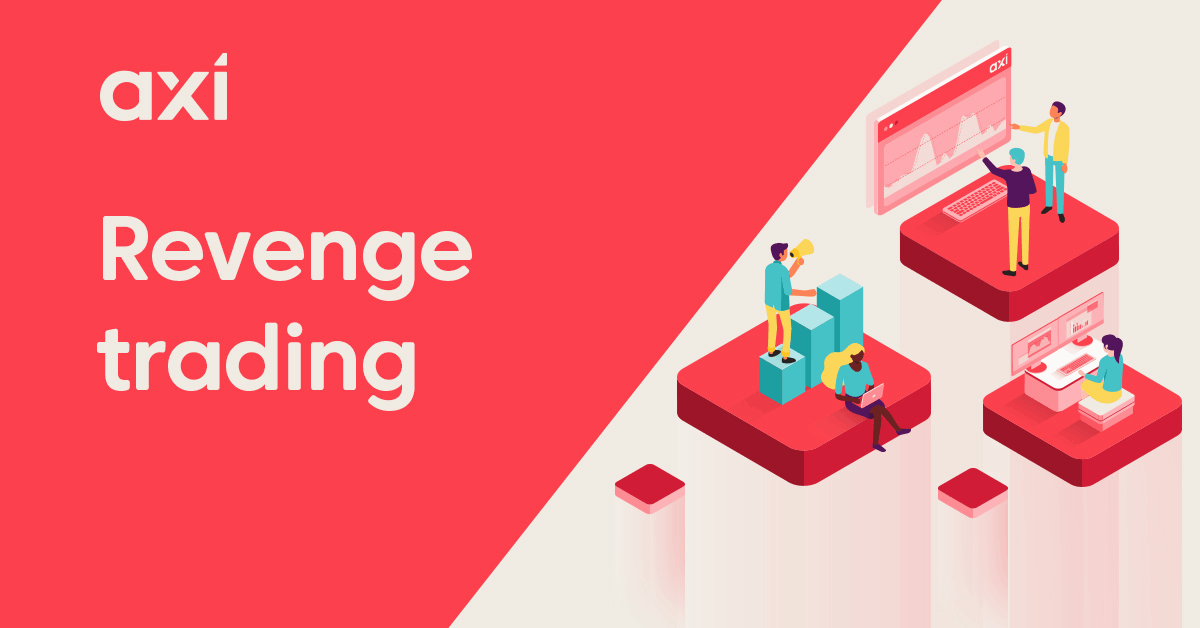Did you know that revenge trading can be as tempting as a donut in a diet class? While it might satisfy an immediate craving for quick gains, the consequences can leave your trading account feeling pretty empty. In this article, we delve into the phenomenon of revenge trading, exploring its definition, impact on your account balance, and the emotional triggers that drive traders to seek retribution for losses. You'll learn how this risky behavior can lead to larger losses, disrupt trading discipline, and even create psychological stress. We’ll provide insights on recognizing the signs of revenge trading, strategies to prevent it, and ways to recover from its pitfalls. With guidance from DayTradingBusiness, you’ll discover the importance of patience and emotional management in fostering long-term trading success. Read on to safeguard your trading journey!
What is revenge trading?
Revenge trading is when a trader tries to recover losses by making impulsive, often larger, trades after a losing streak. It leads to emotional decisions instead of strategic ones. The effects include increased losses, high stress, and poor risk management, often worsening the trader’s financial situation.
How does revenge trading impact my account balance?
Revenge trading typically causes your account balance to drop because you chase losses impulsively, often making bigger, riskier bets. It fuels emotional decisions, leading to poor trades that quickly deplete funds. Instead of strategic moves, you risk spiraling into continuous losses, damaging your overall trading capital.
Can revenge trading lead to larger losses?
Yes, revenge trading often leads to larger losses. When traders try to recover losses quickly, they take bigger risks, ignore proper risk management, and make impulsive decisions. This cycle can escalate losses instead of recouping them.
Why do traders turn to revenge trading?
Traders turn to revenge trading when they feel frustration or anger after a loss, hoping to quickly recover their money. This behavior is driven by emotional impulses rather than logical decisions. Revenge trading often leads to bigger losses, as traders chase missed opportunities or try to undo previous mistakes. It cloud’s judgment, causes impulsive actions, and erodes disciplined trading habits. The effect is a cycle of increased risk, emotional stress, and potential financial ruin.
What emotional factors drive revenge trading?
Revenge trading is driven by emotions like anger, frustration, and a desire for payback. Traders feel hurt after losses and want to recoup them quickly, fueling impulsive decisions. Fear of admitting mistakes and shame over losses also push traders to seek revenge. These emotions override rational analysis, making revenge trading a reactive, impulsive response to losses rather than a strategic move.
How does revenge trading affect trading discipline?

Revenge trading destroys discipline by encouraging impulsive decisions instead of following a strategic plan. It makes traders emotional, leading to risky bets and ignoring risk management. This behavior erodes consistency, increases losses, and undermines long-term success. Ultimately, revenge trading clouds judgment and fosters a cycle of poor trading habits.
Does revenge trading increase risk exposure?
Yes, revenge trading increases risk exposure. It leads traders to make impulsive decisions, ignore their strategies, and chase losses, all of which heighten the chances of significant financial losses.
Can revenge trading cause psychological stress?
Yes, revenge trading causes psychological stress. It triggers emotional reactions like frustration and anger, which impair decision-making. Repeated losses from revenge trading can lead to anxiety, guilt, and decreased confidence, intensifying mental strain.
How does revenge trading influence long-term trading success?
Revenge trading damages long-term success by clouding judgment, leading to impulsive decisions and larger losses. It erodes discipline, making traders chase losses instead of sticking to their strategies. Over time, it increases emotional stress, causing more mistakes and reducing overall profitability. Revenge trading often results in a negative cycle, making consistent gains harder to achieve.
What are common signs of revenge trading?

Common signs of revenge trading include impulsively doubling down after losses, chasing losses to recover money quickly, feeling angry or frustrated during trades, and refusing to stick to a trading plan. You might notice emotional decisions overriding logic, frequent revenge attempts after a bad trade, and difficulty accepting losses. These behaviors often lead to bigger mistakes and financial damage.
How does revenge trading affect decision-making?
Revenge trading clouds judgment, leading to impulsive decisions and ignoring risk management. It pushes traders to chase losses, often doubling down instead of cutting losses. This emotional response increases the likelihood of bigger mistakes and financial losses. Revenge trading erodes discipline, making it harder to stick to a solid trading plan. It shifts focus from strategy to emotion, impairing rational decision-making and increasing stress.
What strategies can prevent revenge trading?
Set strict trading rules and stick to them. Use stop-loss orders to limit losses. Take breaks after losing trades to reset your mindset. Focus on the process, not just winning or losing. Keep a trading journal to spot emotional patterns. Practice mindfulness to stay calm and avoid impulsive decisions. Remember, patience and discipline prevent revenge trading and protect your account.
Is revenge trading linked to overtrading?
Yes, revenge trading is linked to overtrading. When traders try to recover losses quickly, they often make impulsive, frequent trades, leading to overtrading. This behavior amplifies risk and can worsen losses.
How can I recover from revenge trading mistakes?
To recover from revenge trading mistakes, stop trading immediately, analyze what triggered the revenge move, learn to manage emotions, and develop a solid trading plan with strict risk management. Reflect on the losses without panic, avoid impulsive decisions, and practice patience to rebuild confidence gradually.
What role does patience play in avoiding revenge trading?

Patience prevents revenge trading by helping traders stay calm after losses, reducing impulsive decisions driven by anger or frustration. It allows for thoughtful analysis instead of reckless revenge moves, preserving emotional balance. With patience, traders avoid spiraling into bigger losses caused by impulsive revenge trades.
Can revenge trading lead to burnout?
Yes, revenge trading can lead to burnout. Constantly chasing losses and risking more money fuels stress and emotional exhaustion, draining your mental energy over time.
How does revenge trading impact trading confidence?
Revenge trading destroys trading confidence by fueling impulsive decisions, increasing emotional stress, and eroding discipline. It makes traders second-guess their strategies, leading to more mistakes. Over time, revenge trading creates a cycle of frustration and self-doubt, weakening trust in their abilities.
Learn about How Do Prop Firms Impact Day Trading Profitability?
What are the best ways to manage emotions after a loss?
Focus on expressing your feelings through journaling or talking to a trusted person. Practice mindfulness or deep breathing to stay grounded. Allow yourself to grieve without judgment. Engage in activities that bring comfort or distraction, like exercise or hobbies. Seek professional support if emotions become overwhelming.
How does revenge trading compare to disciplined trading?
Revenge trading leads to impulsive decisions, emotional losses, and bigger mistakes, worsening your trading results. Disciplined trading, on the other hand, relies on sticking to a plan, managing risk, and controlling emotions, which improves consistency and long-term profits. Revenge trading damages your confidence and trust in your strategy, while disciplined trading builds patience and resilience.
What are the risks of impulsive trading after a loss?
Impulsive trading after a loss often leads to revenge trading, which increases the risk of bigger losses. It clouds judgment, making you chase quick profits instead of sticking to your strategy. This behavior can cause emotional decisions, forcing you into risky trades. Over time, revenge trading erodes your trading account and damages confidence, making it harder to stick to disciplined investing.
Conclusion about What Are the Effects of Revenge Trading?
Revenge trading can have detrimental effects on your trading account and emotional well-being. It often leads to larger losses, increased risk exposure, and a decline in trading discipline. Understanding the emotional triggers behind this behavior is crucial for long-term success. By implementing effective strategies to manage emotions and maintain patience, traders can avoid the pitfalls of revenge trading. Remember, maintaining discipline and emotional control is essential for sustainable trading success. For further insights and support, consider leveraging the resources from DayTradingBusiness.